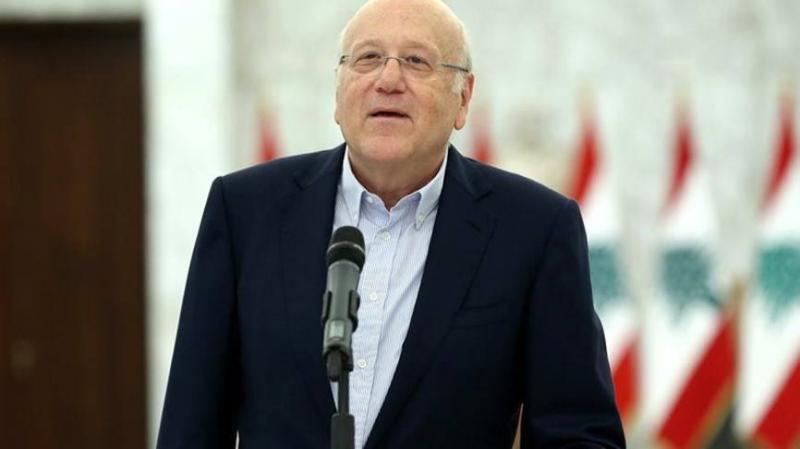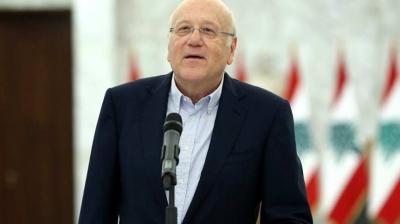Lebanon's Prime Minister Najib Mikati announced that the country has reached an advanced stage in its discussions with the International Monetary Fund (IMF), adding that the revised financial recovery plan will be ready this month. Speaking at a conference discussing the economic and living conditions, Mikati stated that the country's financial situation begins with negotiations with the IMF and the relationship with the World Bank, reviving the banks, and implementing the economic recovery plan. He noted, "There are advanced steps with the IMF, and they have serious figures for the first time; the topic is headed in the right direction, and we hope to have a memorandum of understanding with the IMF soon."
Regarding the economic recovery plan, the Prime Minister pointed out that the World Bank is providing assistance to Lebanon and facilitating many things at the moment, having allocated $1.7 billion over two years. There are funds allocated from the IMF that have not yet been disbursed, and he mentioned that they will see how to benefit from them.
On the latest developments with financial consulting firm Lazard, Mikati stated, "I discussed the economic recovery plan with the company, and there is full coordination, with the Central Bank of Lebanon working with the firm, and we will receive the recovery plan this month."
He noted that Lebanon has not yet received the specific funding for the support card from the World Bank, and they are trying to secure financing for it, stating that the platform for it is ready.
Regarding electricity, Mikati said, "We are working on two levels: short and medium term, and long term. In the medium term, we are working to secure 10 to 15 hours of electricity daily for all of Lebanon. Electricity has been the most draining issue for Iraqi oil, which is the sole source of electricity in Lebanon. We signed for one million tons per year with Iraq, receiving 75,000 tons monthly. This crude oil cannot be used, so we will agree with a refinery each time to refine this oil into usable fuel, and we will receive 50,000 tons of refined oil monthly, which is our only source."
On oil and gas, Mikati mentioned, "I discussed with the Prime Minister and the Minister of Oil in Iraq about the matter, and we seek to increase the refining quantity so that we receive the amount within five months, not a year." Regarding Egyptian gas, Mikati confirmed that Egypt did not accept to finalize the matter without messages from the U.S. administration exempting it from the Caesar Law. Additionally, they negotiated with the Egyptians to oversee the gas pipeline between Syria and Lebanon, and they found faults that will be repaired within six weeks at a cost of one million dollars, with the World Bank ready to cover the cost within six weeks.
The Prime Minister revealed an agreement with Jordan to supply Lebanon with electricity via Syria, and a price per kilowatt has already been agreed upon, with the World Bank set to pay for it. Mikati summarized the developments in the energy sector by saying, "In summary, energy sources from Egypt, Jordan, and Iraq enable us to achieve our goal of obtaining electricity for 12 to 15 hours daily in the foreseeable future. In the long term, we aim to secure the production of more than 3,000 megawatts of electricity, which means that supply will cover Lebanon 24/7, provided that the World Bank contributes $290 million for that plan."




